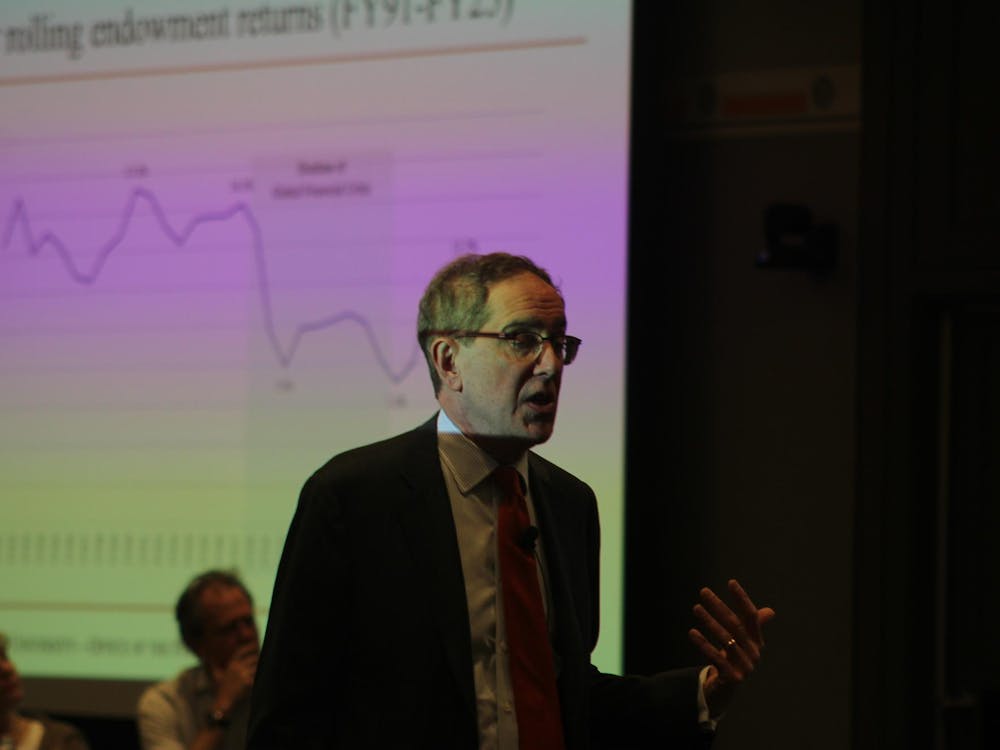The University's Board of Trustees approved last week an $800 million budget which included several new measures designed to improve life on campus.
Among other initiatives, the budget included a decision to increase the length of late lunch at Frist by 15 minutes.
Brad Simmons '03, a member of the U-Council, served on the Priorities Committee — a group of students, faculty, staff and administrators who prepare the operating budget each year for approval by the president and trustees.
"Extended hours and enhanced programming at Frist will probably be the most significant result of the new budget for undergrads," Simmons wrote in an e-mail. "Close seconds are additional resources for the fitness center, continuation of the Student Computer Initiative and adjustments to the language laboratory (where students watch films for class)."
Simmons served with three other undergraduates on the committee: Allison Arensman '04, Justin Mirabel '03 and Jason Navarino '04. "The undergraduate members of the Priorities Committee were amazingly united throughout," Simmons said. "Absent that, the most important parts of the students' agenda would have been overlooked. I was genuinely impressed by my colleagues on the committee."
Navarino said that the group tried to keep spending within stringent guidelines. Since spending approved by the Priorities Committee automatically stays in the budget in future years, and the economy makes it hard to predict how much income the University's investments will earn in the future, the Committee was reluctant to add many new staff positions this year.
Navarino explained that the operating budget, over which the Priorities Committee has control, is one of three budgets that fund the University. In addition, there is a capital budget used to finance construction and a separate research budget that covers the costs of scientific work.
The Committee considered, but ultimately rejected, a proposal to give international students a second free round trip to their home nations each year in addition to the one trip per year for which the University already pays.

Although Navarino said he had favored the proposed second trip, there were many competing spending proposals, only a few of which could be funded this year. The competition between various departments often became intense, Navarino said, and less than half of the requests could be granted.








